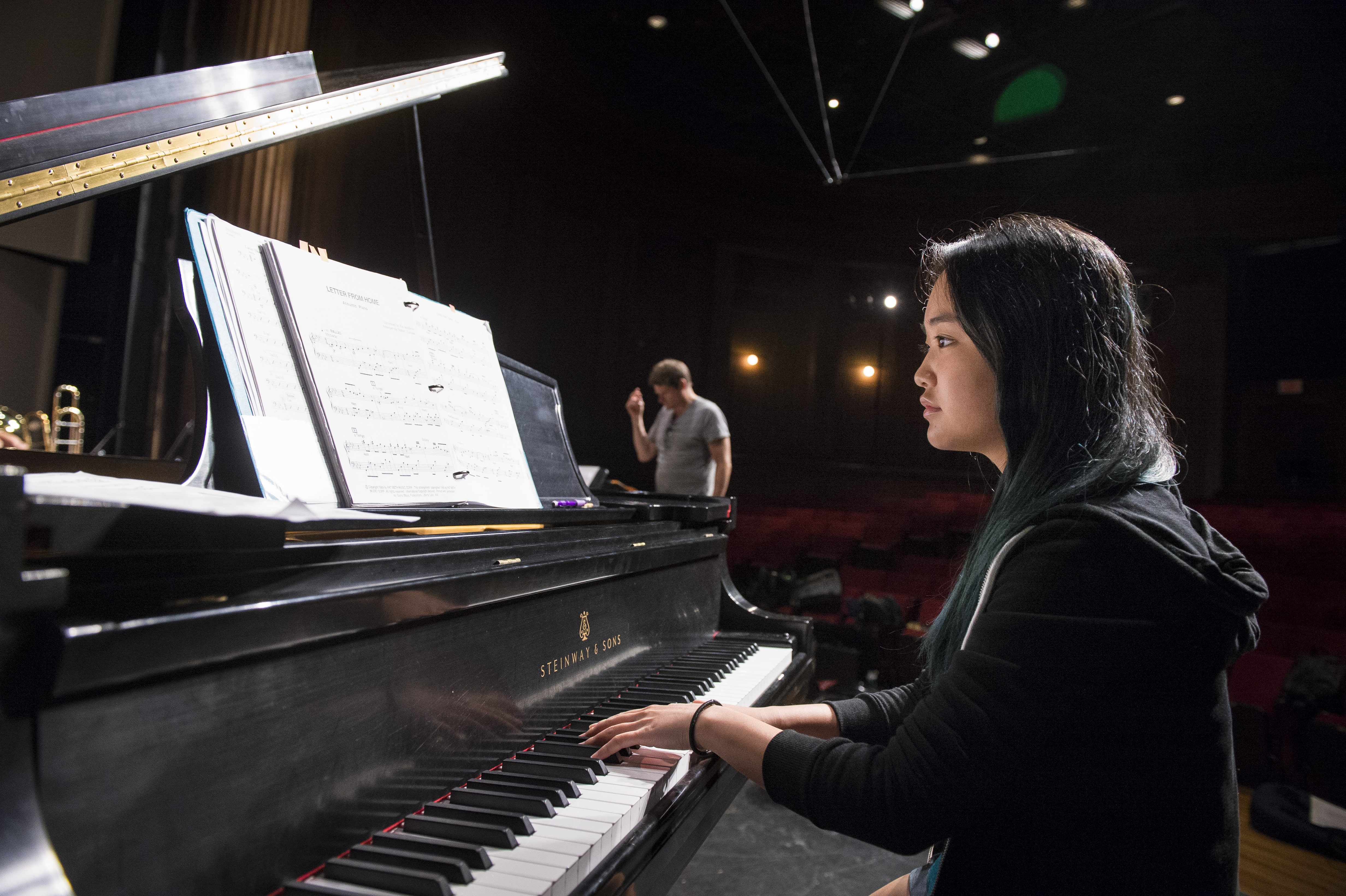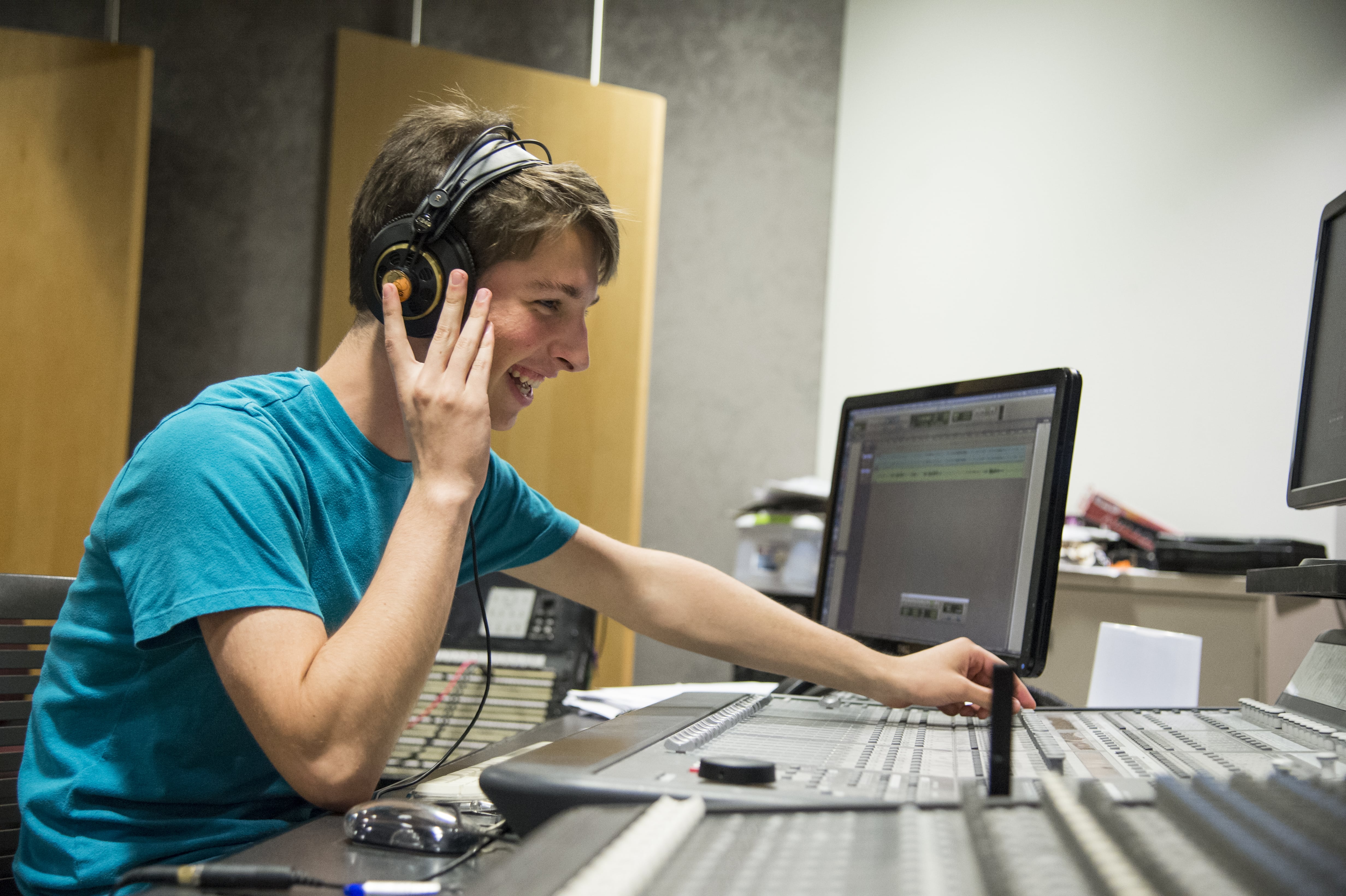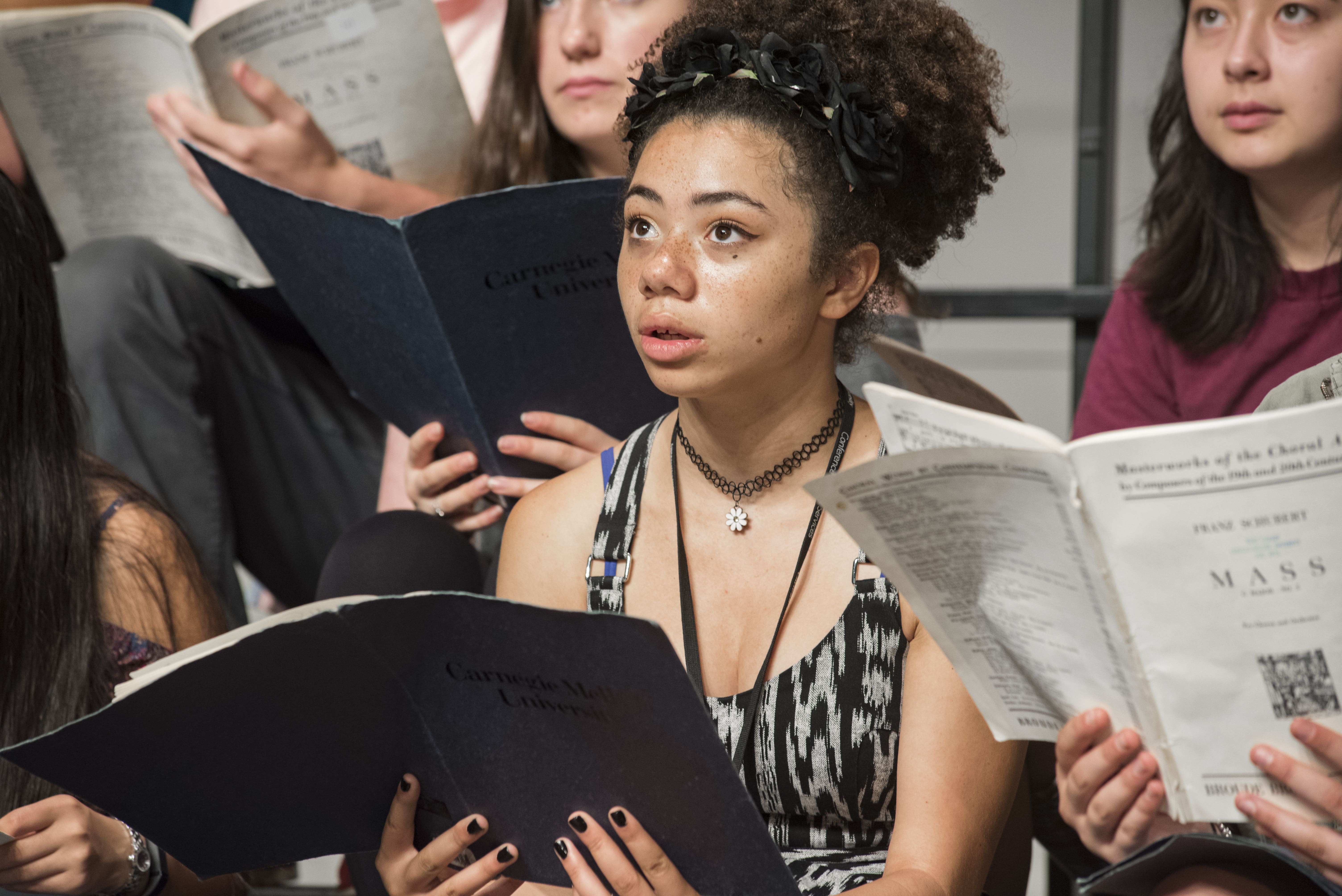Course Descriptions
After choosing their major, students participate in many enriching musical opportunities, including studio lessons, classroom courses, and performing ensembles.
*Asterisks indicate required coursework for all full-time music majors.
Major Studio Lessons*
Instrumental majors receive a private studio lesson each week, with an opportunity to perform in the Honors Recital at the end of the summer. Students may major in bagpipe, bassoon, cello, clarinet, double bass, euphonium, flute, guitar, harp, horn, oboe, percussion, piano, saxophone, trombone, trumpet, tuba, viola, or violin.
Voice majors receive a one-hour private studio lesson (with professional accompanist) and an additional half-hour private vocal coaching session each week through the summer where they work on technique and the preparation and presentation of classical repertoire. Voice majors will perform in the voice recital during concert week.
Composition majors receive a private studio lesson each week and explore several areas of music composition including theory, orchestration and electronic music, both in classes and in individual instruction. At the end of the summer, students participate in a recording session with professional musicians who will read student works.
Music Technology/Electronic Music majors receive a one-hour private training each week and study the use of computers for analyzing and creating music in the Music Technology Lab. Students work in a private studio setting to develop the skills needed to be a successful studio engineer. They learn the basics of Pro Tools as well as how to use industry standard Waves Audio plugins necessary for post production.
*required coursework for all full-time music majors.
Minor Studio Lessons
Through optional Minor Studio Lessons, students may take introductory or advanced lessons in any of the offered Major Studios. Students also have the ability to double the number of studio lessons by registering for the minor studio in their specified major instrument. Students may minor in any of the following: bagpipe, bassoon, cello, clarinet, composition, double bass, euphonium, flute, guitar, harp, horn, oboe, percussion, piano, saxophone, trombone, trumpet, tuba, viola, violin, jazz voice, or voice.
Note: Composers and voice majors are required to take piano during the regular school year. While we do not make this requirement of summer students, we strongly encourage voice and composition majors to sign up for a minor studio in piano.
Acting
Composer's Forum
Convocation*
Weekly meeting of all Pre-College music students featuring performances and lectures from professional musicians.
*required coursework for all full-time music majors.
Dance
This curriculum is designed to expose students to various styles and genres of contemporary and traditional forms of dance and movement. Students will increase their technical proficiency and personal artistry in dance in order to expand their physical skills as vocal performance artists. The course will improve students' posture and strength, increase proficiency in dance vocabulary, increase ability to recognize, interpret and execute choreography, movement and staging direction, enhance kinesthetic awareness and physical confidence and improve overall health. With a focus on creativity and expression in movement, this course concentrates on using the body as a tool in the creative process.
Eurhythmics*
Dalcroze Eurhythmics is a unique approach to music learning based on the recognition that meaningful rhythmic movement experience, associated with ear-training and improvisation, reinforces understanding of music concepts, enhances musicianship, and focuses awareness on the physical demands of artistic performance. All concepts are experienced in a musical context. Rhythm reading, notation, analysis, and improvisation are integral to the course.
*required coursework for all full-time music majors.
Jazz Improvisation
This course focuses on the skills, motifs, and techniques of improvisation in the jazz environment.
Note: Minor Studio Improvisation focuses on a more classical style while Jazz Improvisation centers around improvisation in a Jazz setting.
Music History Seminar*
Each week, rotating guest faculty members present a topic of their choice. Lessons cover a wide variety of subjects (from pre-baroque polyphony to the ballets of Stravinsky, to the history of American music), ensuring that students are exposed to depth as well as breadth.
*required coursework for all full-time music majors.
Music Technology
Music Theory*
Opera Workshop
Piano Seminar
Recording Techniques
Solfège*
This course improves the student's ability to analyze music aurally and to sing at sight in traditional meters and tonalities using the "fixed do" system. Solfège is the integration of the three cognitive skills: reading music, hearing music, and writing what one hears.
*required coursework for all full-time music majors.
Voice Class
Summer Ensembles
INSTRUMENTAL ENSEMBLES
- Chamber Music
- Improvisation Ensemble
- Jazz Ensemble
- Millennium Symphony Orchestra
- Wind Ensemble
VOCAL/CHORAL ENSEMBLES
- Concert Choir*
- Jazz Choir
- Opera Workshop
INSTRUMENTAL CLINICS
- Brass Clinic
- Jazz Clinic
- Percussion Clinic
- String Clinic
- Woodwind Ensemble


